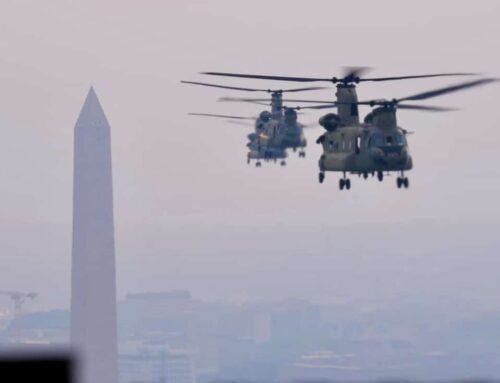The Pentagon has pulled its support for a regulation that would have paid defense contractors less money up front on major weapons deals, a move that follows pressure from influential lawmakers and defense industry lobbyists. Instead, officials say they will work with the defense industry to come up with a new plan.
The policy, which the Defense Department proposed last month, would have lowered the amount of financing support defense contractors typically receive in the early phases of a contract. Under current policy, such payments typically cover 80 percent of those costs. The new regulation would have slashed that to 50 percent while tying cash flow more closely to performance, and it also would have set up new restrictions for companies convicted of fraud.
The department initially said the regulation would save hundreds of millions of taxpayer dollars and make the U.S. military more efficient, arguing that contractors have been overpaid for years. But in a statement sent to reporters Monday, Deputy Secretary of Defense Patrick Shanahan said the rule was released prematurely.
Defense industry associations applauded the Pentagon’s decision. In a statement, National Defense Industrial Association President and chief executive Hawk Carlisle said the rule would have “done more harm than good” by undermining defense firms’ financial health.
Budget hawks had the opposite reaction. “Taxpayers shouldn’t be subsidizing costs for contractors that don’t meet minimum expectations for performance,” said Steve Ellis, vice president of Taxpayers for Common Sense, an advocacy group.
The payments rule is part of a broader Defense Department effort to pay contractors for better results.
The Pentagon is already negotiating such arrangements on some contracts. The most recent contract for Lockheed Martin’s F-35 Joint Strike Fighter, which was announced Friday, for the first time contains a set of “performance-based” incentives, F-35 Joint Program Executive Mat Winter said in a Monday briefing.
As part of a deal that brings the price of the most common F-35 model below $90 million for the first time, the government says it will pay companies for better results at the final phase of the jet’s assembly, where quality-control issues have led to late deliveries in the past. He said the government has negotiated a similar performance incentive with Pratt and Whitney, which makes the F-35′s engine, and that both companies have embraced the idea.
“That’s a dialogue that we have not done on previous contracts,” Winter said. “That performance incentive is to the benefit of Lockheed Martin so that they can increase their flow, so that they can actually deliver on time.”
But the now-rescinded financing rule illustrates how political pressure could become an obstacle to broader reform. The department’s walk-back follows weeks of backlash from contractors, who did not take to the idea of having their cash flow regulated differently.
The three major industry associations representing defense contractors — the Professional Services Council, the Aerospace Industries Association and the National Defense Industrial Association — each opposed the rule in a Sept. 14 meeting held by the Defense Department. For two days last month, stock prices of the major defense contractors fell in tandem after a prominent analyst said the rule could hurt defense contractor cash flow.
Then, early last week, powerful lawmakers in the House and Senate took up the issue, siding with the defense industry. In a Sept. 24 letter addressed to Shanahan, House Armed Services Committee Chairman Mac Thornberry (R-Tex.) and Senate Armed Services Committee Chairman James M. Inhofe (R-Okla.) asked for the rule to be rescinded.
They argued that the rule would hurt the U.S. military by discouraging government contractors from investing in innovation.
“With the sophisticated threats our nation now faces … our service members need the very best technology as quickly as possible,” the two lawmakers wrote. “This new rule would discourage greater industry investment in innovation at a time when we need it most and will make it harder to attract and retain a technically skilled workforce necessary to tackle the most challenging national security problems.”
According to the Center for Responsive Politics, Thornberry’s campaign accepted $282,250 from defense industry interests in 2017 and 2018, with Raytheon, Northrop Grumman and BAE Systems among his largest contributors. Inhofe has accepted campaign donations from the defense firm General Dynamics and has separately advocated for the F-35, the world’s most expensive fighter jet, to be stationed at his hometown of Tulsa.
In his statement announcing that he would rescind the rule, Shanahan did not say whether the Defense Department’s new rule would revisit industry cash flow, but he said the department is committed to reform.
“The department will continue to partner closely with Congress and industry to examine all reform opportunities, ensuring we provide the best value to taxpayers and critical capabilities to military personnel who defend this great nation,” Shanahan wrote.










